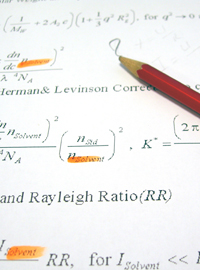
null
null
null
How to Help Math at Home

Below are a number of resources for parents to further supplement lessons with online practice questions, videos, printable worksheets, and fun games to play at home.
Extra Math Practice
Unlike traditional workbooks and exercises, IXL offers hours of intrigue for your child. If you purchase a membership, you can also set goals, track your child's progress, and monitor the usage information.
This site features an extensive library of instructional videos and practice exercises covering a variety of subjects. Each problem is randomly generated, so your child will never run out of practice material.
You design your own games for your child!
Make the Sun rise and set with this interactive clock while learning to tell time.
This site offers interactive lessons and games for your child from kindergarten through the eighth grade.
Simple Ways to Help Your Child with Math
Preschool
- Encourage your child to separate toys or other objects into groups. For example, you could ask your child to separate blue toy cars from red cars.
- Weigh and measure your child, and tell him/her the results. Talk about how some things are taller or shorter and some things are lighter or heavier than your child is. Ask your child to find things in your home that are both tall and heavy or short and light.
- Talk to your child about numbers. Teachers would like children to be able to recognize the numbers 1 to 10 and to be able to count to 20 when they start school.
Elementary School
- Ask your child to explain what he/she learned in math class today. Letting children take the teacher role gives them the chance to practice new skills and to clarify their thinking on a lesson.
- Talk to your child about how adults use math in their everyday lives--grocery shopping, budgeting, balancing a checkbook, and checking clothing sizes, for example.
- Schedule a time and provide a quiet environment for your child to work only on math homework.
Middle School
- Cook up some calculations. Get your child to help you measure ingredients while you cook. Ask the child how he/she would convert a recipe or 4 into a dish for 2 or a banquet for 20.
- Discuss unfamiliar words in your child's math homework. Don't be afraid to admit you don't know or don't remember some of the definitions. Look them up together.
- Teach your child math by teaching him/her about money. It is recommended that children between the ages of 11 and 13 be able to set up a savings plan and a savings account. They also should understand the importance of giving to worthy causes, and they should know how to shop wisely.
- If you have a daughter, you may need to work extra hard to keep her interested in math. Studies show that young girls enjoy math, science, and technology as much as boys do, but by the time they become eighth graders, twice as many boys as girls say they're interested in math, science, and engineering careers.
High School
- Encourage your teen to read the business section of the newspaper. Articles in this section often have a lot of numbers in them.
- Continually show an interest in your teen's math education. Every few weeks, you might want to ask, "What are you learning now?" Ask your teen to explain the lesson to you if it's not a math concept you already know.
- Point out that even if your teen does not plan to pursue a career in which math is important, learning math is still important because it teaches how to think in a disciplined way.
- Be positive about math. If math was a challenge for you, be careful how you express that to your child. Parent's often say 'I was never any good at math.' Unfortunately, the children may begin to believe that they inherited the same inability. Perseverance is more important than heredity.
Family Math Fun
- Play math-related games with your child. Dominoes, Yahtzee, Uno, Monopoly, and many other games require math skills. Point this out to your child as you play, and talk about the ways that people use math every day.
- Family projects, such as remodeling a room or hanging wall paper, can teach your child an incredible amount of math.
- For children interested in sports statistics, you might want to show them how to set up a graph on paper or a spreadsheet on a computer that they can use to track the numbers.
- Let your child help you map a family trip. Ask him/her to help calculate the number of miles between stops.
- Play math games in the car when your family travels. Ask everyone to look at signs and billboards in order to find a series of numbers in order. For example, a sign with a 1 on it gives you the number 1. Then look for a different sign with a 2 on it. See how high you can go.






